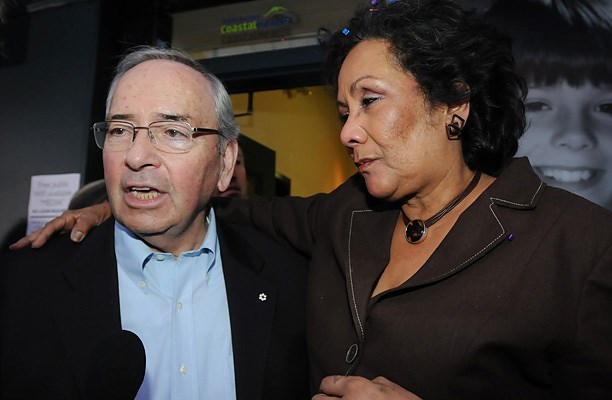OTTAWA — B.C. is leading the country in female participation for the second federal election in a row, according to data collected by the lobby group Equal Voice.
And Vancouver Centre is one of only two ridings where the candidates for all four parties are women. It’s the second consecutive election that Vancouver Centre has had an all-female roster.
There are 56 women nominated by the four major parties in the province’s 42 ridings, representing about 37 per cent of nominations that have been filled.
While short of the organization’s target of gender parity in Parliament, it’s far ahead of the national total of 31 per cent.
Even the Conservatives, traditional laggards in this area due to party hostility to any measure remotely suggesting affirmative action, are in the game with a 30-per-cent rate.
That’s far above the governing party’s national average of 19 per cent.
The NDP leads the way in B.C. with women winning 47.5 per cent of the nominations (the party’s national rate is 43 per cent), while the Liberals are at 36 per cent (31.5 per cent nationally) and the Greens 32 per cent (31 nationally).
So why is B.C. leading the way in the push toward gender equity in Parliament?
There have been no academic studies, but one common assumption is that young B.C. women have for generations had the advantage of strong role models.
“We’ve had a pretty long history of significant women being involved in politics,” said Equal Voice B.C. spokeswoman Carolyn Jack.
From Grace McCarthy and Rosemary Brown to Canada’s first female prime minister, Kim Campbell, the West Coast has shown the way, she noted.
The one bit of bad news for B.C. is that the province is currently below the record showing in 2011, when 41 per cent of candidates were women.
There are still 15 candidates to be named (as of Saturday) — Elizabeth May’s Green party has eight spots to fill, the Liberals three, and the New Democrats and Tories two apiece, according to Equal Voice.
While Vancouver Centre is the only riding with four female candidates, there are 26 across the country where only men will be speaking for the major parties at all-candidates’ gatherings.
Jack noted that the B.C. legislature, with a premier and 36 per cent of the MLAs female, also leads the country.
Equal Voice said that even in an era of strict control by leaders over parties, studies show that women make a huge difference.
“Women are more likely to speak on issues important to women, like violence, pay equity, child care, senior care, child poverty, etc.,” Joan Weinman said in an email.
She noted Ontario Premier Kathleen Wynne’s record on violence against women and sex education in the Ontario curriculum, and said federal Health Minister Rona Ambrose has been outspoken on issues relating to violence against women.



